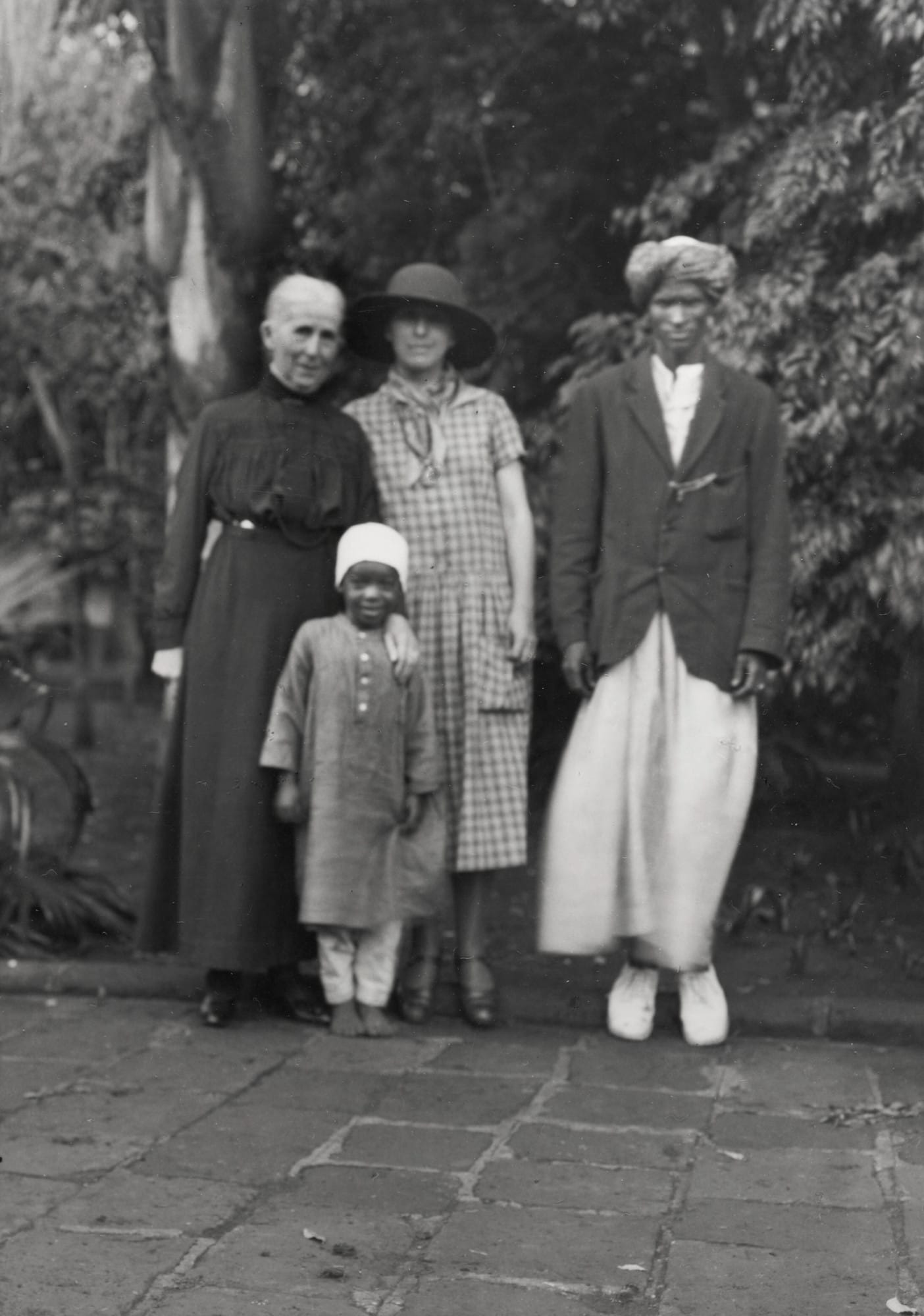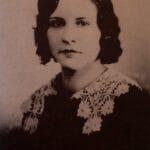Imagine a life filled with adventure, love, loss, and literary triumph. That was the world of Karen Blixen, a fascinating woman better known to many by her pen name, Isak Dinesen. Her stories, particularly the captivating world she created in “Out of Africa,” continue to enthrall readers. Let’s embark on a journey to uncover her remarkable life, the experiences that shaped her, and the enduring power of her words.
From Danish Privilege to the African Savanna
Born into an aristocratic Danish family, Karen Blixen could have easily chosen a life of comfort and conventionality. But Blixen yearned for something more. In 1914, she made a life-altering decision, moving to Kenya to marry her second cousin, Baron Blixen-Finecke. Together, they embarked on a venture that would forever shape her destiny: establishing a coffee plantation.
Life on the plantation was far from idyllic. Blixen faced the harsh realities of farming in a foreign land, battling unpredictable weather, financial uncertainty, and the complexities of colonial society. Yet, amidst these trials, she developed a deep connection with Africa—its people, its landscapes, and its untamed beauty. This connection would become the lifeblood of her writing.
The Rise of Isak Dinesen
It was under the pen name Isak Dinesen that Karen Blixen truly blossomed as a writer. Her debut collection, “Seven Gothic Tales,” published in 1934, catapulted her to international acclaim. Critics and readers alike were captivated by her masterful storytelling, her ability to weave together elements of gothic romance, folklore, and psychological insight.
However, it was her autobiographical masterpiece, “Out of Africa,” published in 1937, that would cement her literary legacy. With a blend of nostalgia, sharp wit, and a deep appreciation for the human experience, Blixen recounted her years in Kenya. The book resonated deeply with readers, transporting them to the African savanna and igniting their imaginations.
More than just a personal memoir, “Out of Africa” offered a nuanced portrait of colonial life with all its complexities and contradictions. The book’s success transcended the page, inspiring an Academy Award-winning film adaptation that further solidified Blixen’s place in popular culture.
A Legacy Intertwined with Controversy
While Blixen’s literary achievements remain undeniable, her work, particularly “Out of Africa,” has drawn criticism in contemporary times. Some argue that her portrayal of Africans perpetuates colonial stereotypes, romanticizing a past marked by power imbalances and racial inequality.
These critiques are essential. They challenge us to engage with Blixen’s work through a more critical lens, acknowledging the historical context and evolving understanding of colonialism’s legacy. They encourage us to engage in nuanced discussions about art, representation, and the responsibilities of storytellers, especially when writing about different cultures.
The Enduring Allure of a Complex Figure
Despite the complexities surrounding her legacy, Baroness Blixen continues to fascinate. The enduring popularity of “Out of Africa,” the preservation of her former home in Kenya as a museum, and ongoing scholarly analysis of her writing speak to her lasting impact.
Baroness Blixen was a woman of contrasts—an aristocrat who embraced the African bush, a storyteller who captured both the beauty and harsh realities of her time. Her life, a tapestry woven with adventure, love, loss, and resilience, continues to captivate our imaginations. And while her legacy remains complex and undoubtedly subject to ongoing debate, her ability to provoke thought and inspire reflection ensures that Baroness Blixen will be remembered as a literary icon.
Beyond “Out of Africa”: Navigating Life After Kenya
Leaving Africa in 1931 marked a profound turning point for Karen Blixen. Imagine the heartbreak of saying goodbye to a place that had been your home, your passion, for nearly two decades. The failure of her coffee farm and the tragic death of her beloved Denys Finch Hatton in a plane crash weighed heavily on her as she returned to Denmark.
Back in her home country, she embraced the pen name Isak Dinesen and poured her experiences into her writing. “Out of Africa,” capturing the essence of her time in Kenya, became a literary sensation.
Life, however, remained a tapestry of joy and sorrow. Blixen faced chronic health problems, and the longing for Africa permeated her later works. These later books, often darker and more complex, reflect the evolution of her writing and the depth of her experiences.
Throughout her life, Blixen’s passion for storytelling never wavered. Her resilience, her ability to draw strength from her memories of Africa, and the power of her experiences continue to inspire.
Unraveling the Shadows: Syphilis and the Silent Struggle
Karen Blixen’s time in Africa was a whirlwind of love, loss, and unforgettable experiences. But amidst the stunning landscapes, she carried a deeply personal burden—a syphilis diagnosis, most likely contracted from her husband, Bror Blixen. This diagnosis would cast a long shadow over her life.
In the early 20th century, syphilis carried an immense social stigma. Open discussion about the disease was rare, forcing those affected into a world of secrecy and shame. Even though the symptoms were likely agonizing, Blixen kept her condition hidden.
The syphilis diagnosis, it is believed, played a role in Blixen’s decision to leave Kenya. Imagine the pain of leaving behind the life you built, the land you grew to love, all because of a disease shrouded in silence and misconception.
It wasn’t until much later in life that Blixen chose to speak openly about her illness, becoming one of the few prominent figures of her era to do so. Her bravery in acknowledging her condition challenged societal norms and shed light on the suffering endured by countless others who felt forced to remain silent.
Blixen’s story serves as a poignant reminder of the power of using one’s voice to challenge stigma. It encourages us to approach conversations about health and illness with compassion and understanding.
A Life Lived on Her Terms: The Choice Not to Remarry
After the end of her marriage to Bror, Karen Blixen made the decision to never remarry. Though her relationship with Denys Finch Hatton was filled with love and passion, it tragically ended with his untimely death. This loss, coupled with the challenges of her divorce, likely influenced her choice to remain single.
However, it is important to remember that Blixen was a woman of incredible strength and independence. Her decision not to remarry reflects her commitment to forging her own path. She poured her heart into her writing, finding solace and purpose in the landscapes of Africa, the place she truly considered home. Blixen’s life stands as a testament to the power of finding fulfillment and defining one’s own version of happiness.
“Out of Africa”: Between Reality and Romantic Imagination
The film adaptation of “Out of Africa,” with its stunning visuals and compelling performances by Meryl Streep and Robert Redford, has captivated audiences for decades. But how closely does the movie mirror the reality of Blixen’s experiences?
The film, based on Blixen’s memoir, does capture the essence of her time in Kenya from 1914 to 1931. The challenges of running a coffee plantation, the complexities of her relationship with Bror, and her deep connection with Denys Finch Hatton are all woven into the narrative.
However, as with many Hollywood adaptations, some creative liberties have been taken. The film romanticizes certain aspects of Blixen’s life, particularly her relationship with Finch Hatton. The realities of colonialism, a complex and often brutal system, are also presented in a somewhat softened light.
“Out of Africa,” both the book and the film, have sparked countless conversations and inspired journeys to Kenya. While it is essential to acknowledge the distinctions between the romanticized portrayal and historical realities, the enduring allure of Blixen’s story lies in its ability to transport us to another time and place, sparking our imaginations and prompting reflection on love, loss, and the enduring power of the human spirit.
Further Exploring the Lives of Extraordinary Women
Journey with us as we delve into the captivating stories of more remarkable women who dared to live life on their own terms. Discover the chilling details of true crime cases that shocked the world, uncover hidden truths, and celebrate the resilience of the human spirit.
Read the controversial account of Behold a Pale Horse by William Cooper, a work that continues to ignite debate. Uncover the tragedy of Barbara Daly Baekeland, a socialite whose life ended in unimaginable heartbreak. Discover the strength and faith of Berniece Baker Miracle. Explore the complexities of history through the lens of Beverly Hemings and her forbidden romance.
Meet Big Nose Kate, a woman who defied expectations in the Wild West. Learn the story of Billie Frechette, a woman who dared to break free from societal constraints. Encounter the legendary Black Sam Bellamy and the infamous Black Sam Pirate, whose exploits continue to fascinate. Uncover the poignant tale of Blanche Barrow, connected to one of America’s most notorious outlaw couples. And finally, encounter the audacity of Bonnie Parker, a woman who carved her own path in a world on the edge.
- Unveiling Bernhard Caesar Einstein’s Scientific Achievements: A Legacy in Engineering - July 15, 2025
- Uncover who is Jerry McSorley: CEO, Family Man, Business Success Story - July 15, 2025
- Discover Bernhard Caesar Einstein’s Scientific Contributions: Unveiling a Legacy Beyond Einstein - July 15, 2025














